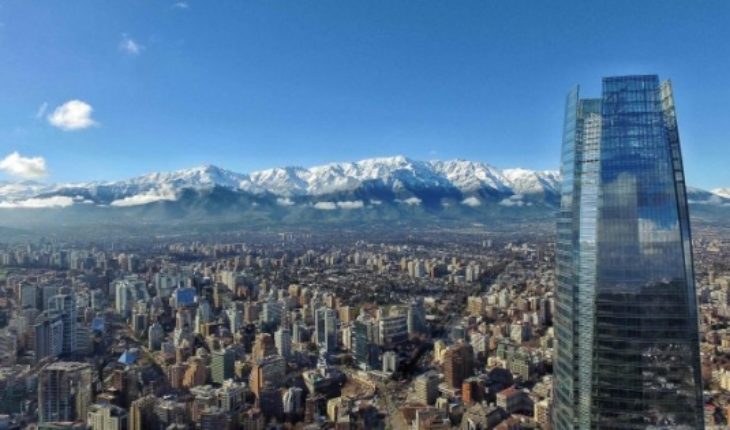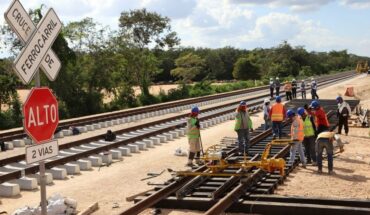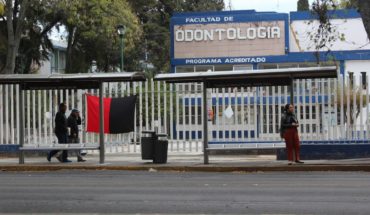Chile is a country of very high urban concentration. 88% of the population lives in cities, more than 65% live in the metropolitan areas and just over 50% are concentrated in the three largest: Santiago, Valparaíso and Concepción.
Large cities present complex problems, the relevance of which we know is related to the population and territorial dimension of the city, and which manifest the most in urban transit and public transport, in the environment, in service networks waste collection, disaster risks, land use planning.
These problems, which affect the quality of life of millions of inhabitants in metropolitan areas, exceed the local or communal level, generally cover the entire urban territory, are systemic and have proven to have no sectoral solution, so they are they demand a comprehensive vision and management and multisectoral governance over the urban territory.
Who should govern metropolitan areas? The correspondence between the territorial scale of the cases and the territorial scale of the government that takes over them seems reasonable. In Chile, this principle is not fulfilled, as decisions regarding metropolises fall primarily on the central government (national scale) and its ministries, and partly in municipalities (communal scale) for the local management of some matters.
Ministries plan and directly manage the public transport of Santiago, manage urban parks and define the location of social housing, without dialogue between them. Municipalities generate cycle-cycle projects, which are interrupted at the communal boundary as the city continues. In all these cases, an entity that represents the city is missing in an integral way.
According to international experience this requirement is met with the constitution of metropolitan governments, which govern autonomously over the main systemic aspects of the metropolitan territory, taking full care of all sectors involved. Its denominations vary: metropolitan government, mayor, metropolitan mayor.
How has Chile made progress in metropolitan governance?
Interest in this regard has emerged in recent decades, starting with the emergence of problems that meant urban catastrophes or serious threats.
In 1993, after the floods in Santiago, and in 2012, when the Costanera Center project and its foreseeable consequences stripped the serious shortcomings in the planning of the city, they were presented in the Chamber of Deputies and the Senate, respectively, constitutional reform projects that established “metropolitan government areas” or “metropolitan mayors” to deal with a space level other than the communal, regional or national and with governments that exercised planning and management functions over the metropolitan territory. Eventually those projects did not succeed.
In January 2014 – the result of a cross-cutting and representative debate of various states of Chilean society – the National Policy for Urban Development (PNDU) was issued, which after diagnosing urban institutional dispersion and inefficiency, proposes changes important in terms of decentralization, such as the reorganization of public powers on four territorial scales, recognizing existing communal, regional and national scales, and adding a new one, the metropolitan scale. It proposes an authority in charge of metropolitan planning that governs the metropolitan territories in its collective or systemic aspects.
Between 2014 and 2018, the National Council for Urban Development, founded in 2014 with the task of ensuring the implementation of the PNDU, developed a governance proposal that designs in detail the structure and powers of future metropolitan governments, defines its functional areas and proposes the competences and instruments to perform those functions.
How have the proposed changes for the metropolises been collected in the country’s new decentralization laws?
Decentralization legislation has materialized in recent years in the enactment of two laws: the constitutional reform that creates the figure of the regional governor – the executive body of the regional government- elected by universal suffrage – Law 20,990 – and the strengthening the country’s regionalization, which establishes the procedures and areas for transferring powers from the central government to regional governments – Law 21.074.
The latter law also advances rules for the constitution of metropolitan areas and hands over the administration of metropolitan areas to the respective regional governments.
It is defined, however, that this “metropolitan” administration is limited to approving certain specific matters. The powers that the elected regional governor would have over metropolitan areas would be either partial and limited to coordination with the sectoral bodies of the central government (seremis)-which continue to operate without further variations in the region-, or restricted to management in marginal matters. In all important developments and decisions on the environment, public transport, land management, waste management, risk management, etc. in metropolitan areas, the role of the regional government – if not null and void – would not be a major role.
In the organic, a smaller department – subordinated to one of its divisions – is created in the structure of the regional government, which deals with the administration of metropolitan areas. In addition, a council of the mayors of each metropolitan area, of an advisory nature, is created with semi-annual meetings. The insignificance of the structure in charge of the metropolises of the region and the inadequacy of local participation in its administration are visible.
This Chilean version of decentralization is a long way from the path posed, in line with global experience, to autonomous metropolitan governments.
However, even in a gradual process in which a first stage is the regional level that manages metropolitan areas, it is appropriate that the metropolitan powers that are transferred are those that allow regional governments to be made comprehensively deal with the problems, and may be the starting point for the formation of metropolitan governments and not an obstacle to that end.
For this purpose, new legal changes are indispensable, adapting institutionality in order to clearly incorporate the metropolises in the decentralizing path, without which many of their problems will have no solution.
The institutional changes required by metropolises in Chile are profound, and if they occur they will necessarily do so in a long-term process. It is for today to seek consensus to define the necessary regulatory and legal changes, expressed in a short-, medium- and long-term policy agenda, and to initiate compliance.
An opportunity to reflect on these issues is presented these days, when improvements to the regional strengthening law are discussed to give greater roles to regional governors, both in their powers and in their capacities and resources. The inclusion of metropolitan areas and their competences in this context of analysis can open up a valuable possibility for progress, if the magnitude of the problem affecting them is realized.
Otherwise this process of decentralization may be a missed opportunity for metropolises.
The content poured into this opinion column is the sole responsibility of its author, and does not necessarily reflect the editorial line or position of El Mostrador.





